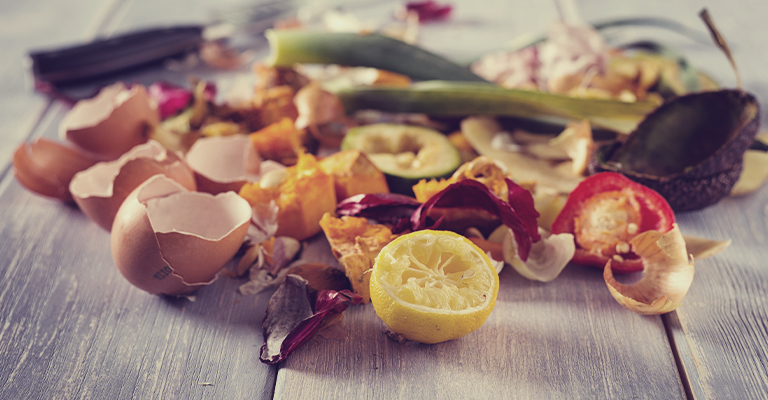
Although the process slows down considerably and even stalls in most northern regions, it is possible and advisable to keep composting in the winter. The main reason is all the material you do not send to the landfill during the cold season (up to 5 months in some parts of Canada) will be transformed into valuable compost when temperatures warm in the spring. Here's how to keep composting in the winter, in a few simple steps.
First, you'll need to find a bin that's big enough for your need. It is also highly recommended to choose one that's equipped with a tightly closed lid to keep animals such as raccoons from making a mess. Install your bin close to the house in a spot where you won't need to shovel to access it, especially if you plan on adding to your bin on a daily basis. You can also choose to store your material in a bag in the freezer and empty it once in a while, when it's full. A good idea to prevent fruit flies in the kitchen!
For starters, add about 12" of carbon-rich ingredients like straw or hay, dead leaves, chipped tree branches or wood shavings at the bottom of the bin. Those are often referred to as "browns". Browns mainly serve as food sources for the microorganisms responsible for the breaking down process.
Make sure to keep a fair amount of extra browns nearby to add to your compost pile during the winter. Remember that each time you add a layer of greens, a layer of browns must be added as well. Greens are nitrogen-rich ingredients like fruit and vegetable peelings, plant trimmings, egg shells and coffee grounds. They help the microorganisms proliferate quickly in the pile, causing it to heat up when temperatures are warm enough. That's why you'll sometimes hear people say their pile is "cooking".
As it will most likely be frozen, there is no need to turn your pile or add water to keep it wet in the winter. Simply wait for temperatures to be on the rise again. One more thing you can do to facilitate the process is to chop up the larger pieces of material beforehand. This will significantly speed up the whole thing.
Composting all year round is a great way to save on soil amendment and minimize your impact on the environment.
Subscribe to our newsletter to receive our gardening tips, news and more directly in your inbox! Fill in the form below. Please note that fields with an * are required.